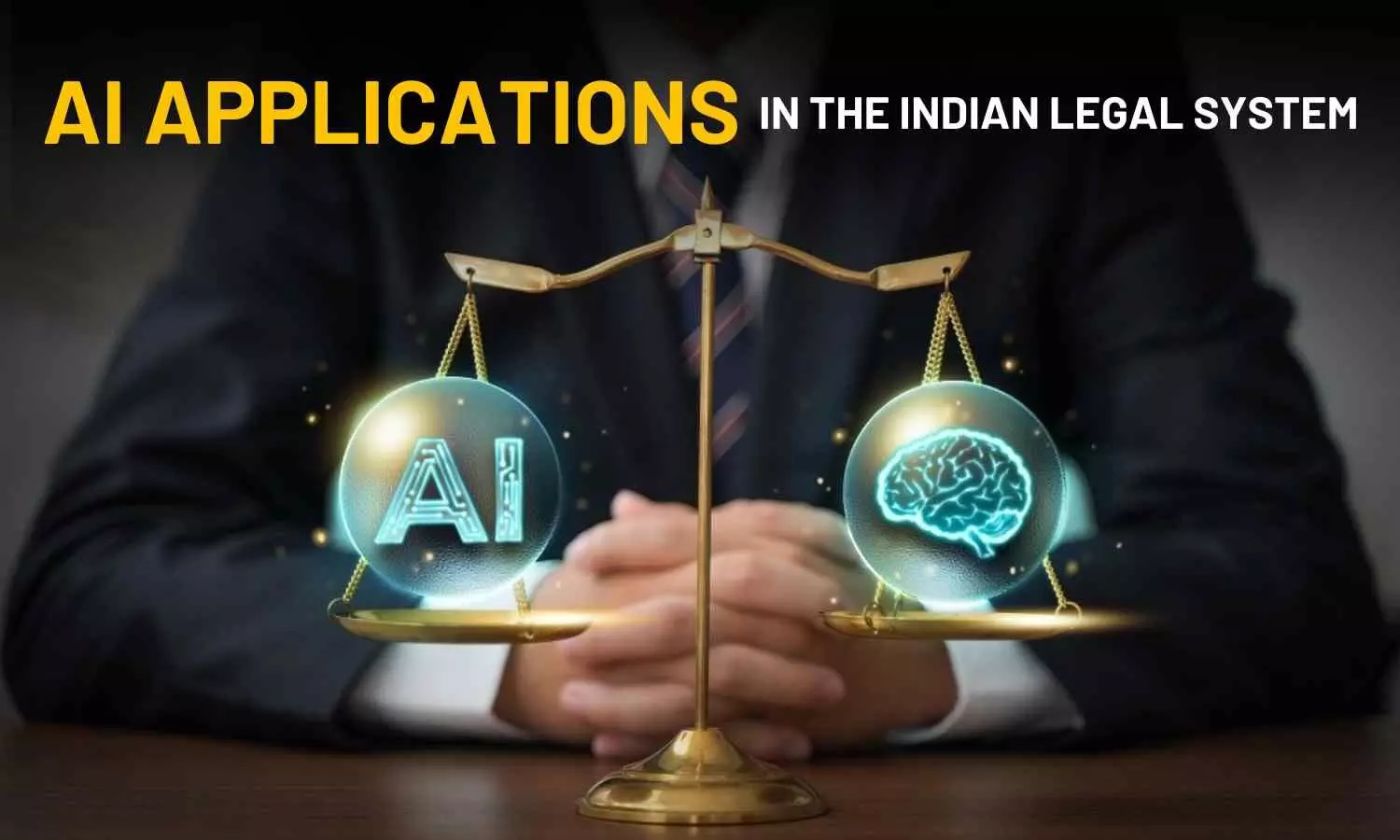Exploring AI Applications in the Indian Legal System
Integrating AI into the Indian legal system opens up a wealth of opportunities for legal professionals to enhance both operational efficiency and accuracy.
Exploring AI Applications in the Indian Legal System

Artificial intelligence has become a dominant force in the modern landscape. From a mere innovation to mainstream technology, AI has come a long way. Today, its influence is everywhere, whether it is business or human operations. Especially if we talk about businesses, AI has become the very essence of their operations. From healthcare, e-commerce, and automotive to manufacturing and education, no industry is immune to the influence of AI. According to IBM, 59% of Indian enterprises have actively deployed AI, the highest among other countries. This statistical figure highlights the fact that Indian industries are leading the charge in AI adoption.
Amongst other Indian industries, the legal sector has stood out, actively deploying AI applications. From document review, contract analysis, legal research and prediction, AI-driven tools are being actively leveraged to improve efficiency and accuracy across different legal functions. India’s Chief Justice D.Y. Chandrachud has been instrumental in promoting the adoption of artificial intelligence within the Indian legal system. Speaking this year at the Indo-Singapore judicial conference, he remarked, "The advancement of technology and AI is inevitable. It holds the potential to significantly change professions and make service delivery more accessible to people. In the field of law, this translates to the potential for AI to expedite and streamline justice delivery. The era of maintaining the status quo is behind us; it is time to embrace evolution within our profession and explore how we can harness the processing power of technology to its fullest within our institutions."
SUPACE (Supreme Court Portal for Assistance in Court's Efficiency) and SUVAS (Supreme Court Vidhik Anuvaad Software) are amongst the incredible initiatives by the Indian legal system, harnessing the power of AI for legal functions. SUVAS assists in translating judicial documents while SUPACE offers relevant facts and information, simplifying the process of researching for judges. These efforts are a testament to the fact that AI is proving to be an invaluable tool in facilitating legal operations.
Simplifying legal decision-making: Role of AI
Minimizing judgment time: From legal research, document analysis, and case preparation, a conventional legal proceeding can be time-consuming, leading to judgment delays. This is where AI plays an integral role. Artificial intelligence with NLP algorithms can gather crucial data from extensive information including, regulations, contracts, statutes, evidence and legal opinions. This, in turn, assists legal professionals in gathering vital information quickly and building a case; thereby, minimizing judgment time.
Improved access to justice: With AI-powered chatbots and virtual assistants, access to justice has expanded. Offering 24/7 availability, these assistants provide preliminary legal information, guidance, self-help resources and basic support to individuals at their own convenience. In addition, with natural language processing and machine learning, AI aids individuals with legal forms, reducing the room for errors. This not only empowers consumers but also ensures inclusivity and effective participation in the legal system.
Legal data analysis: AI-driven tools possess the ability to thoroughly examine the legal aspects, leading to accurate decision-making. By precisely evaluating the characteristics of the case, parties involved, and the jurisdiction, AI-enabled predictive analytics can identify trends, patterns and correlations, offering objective predictions. This, altogether, can aid legal practitioners in recognizing the critical points of their cases and target more informed decision-making.
Road ahead
The integration of AI into the Indian legal system can unlock several opportunities for legal professionals to target operational efficiency and precision.
With advancing AI applications at their helm, legal professionals can discover novel ways to streamline legal functions with the ultimate goal of facilitating justice delivery.

